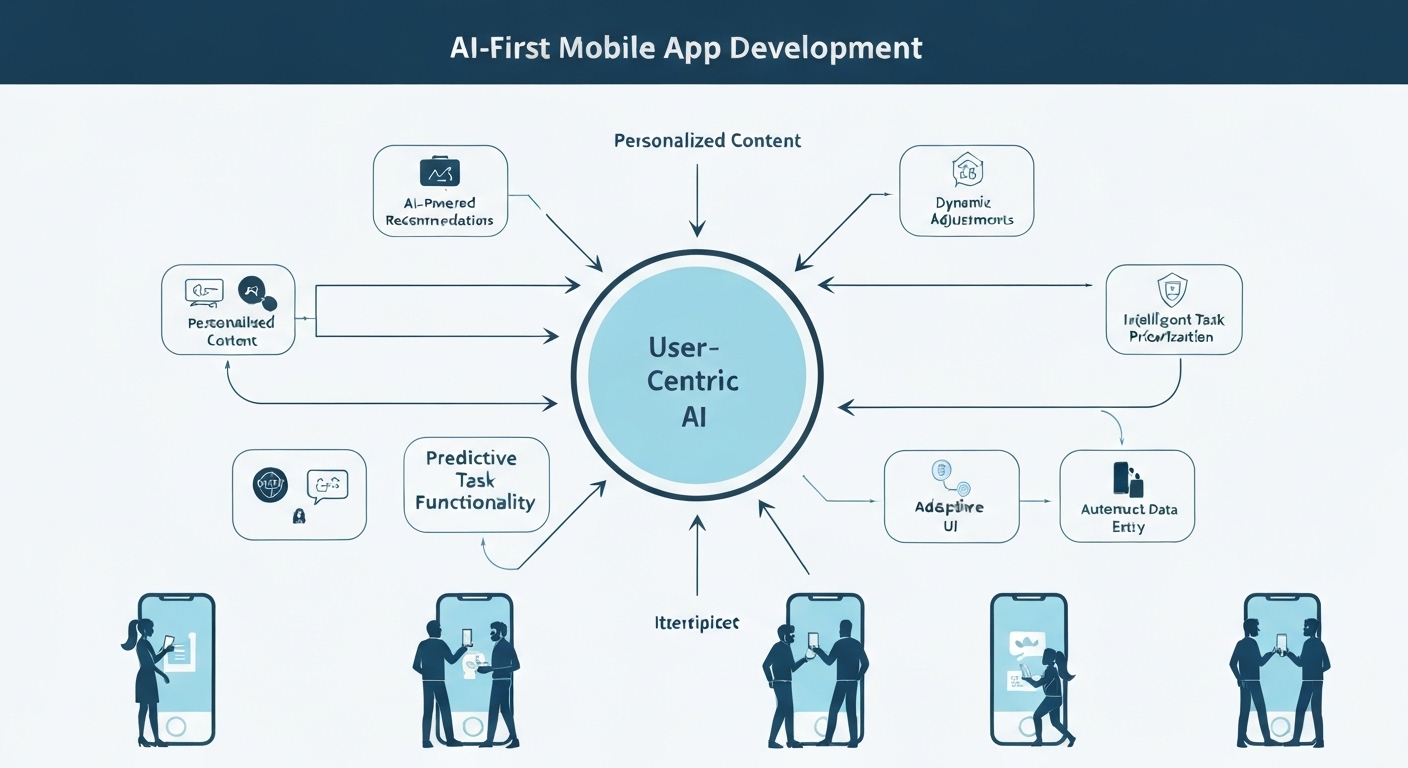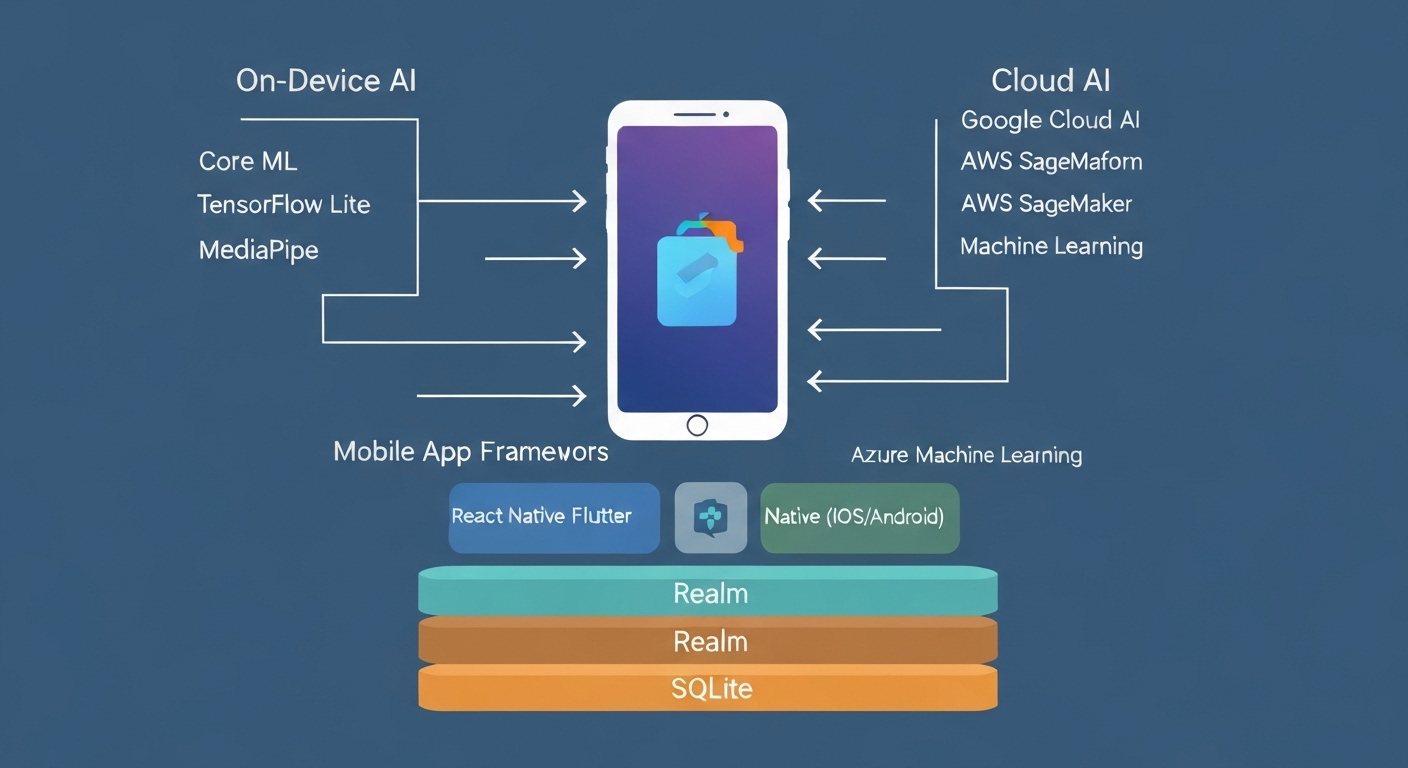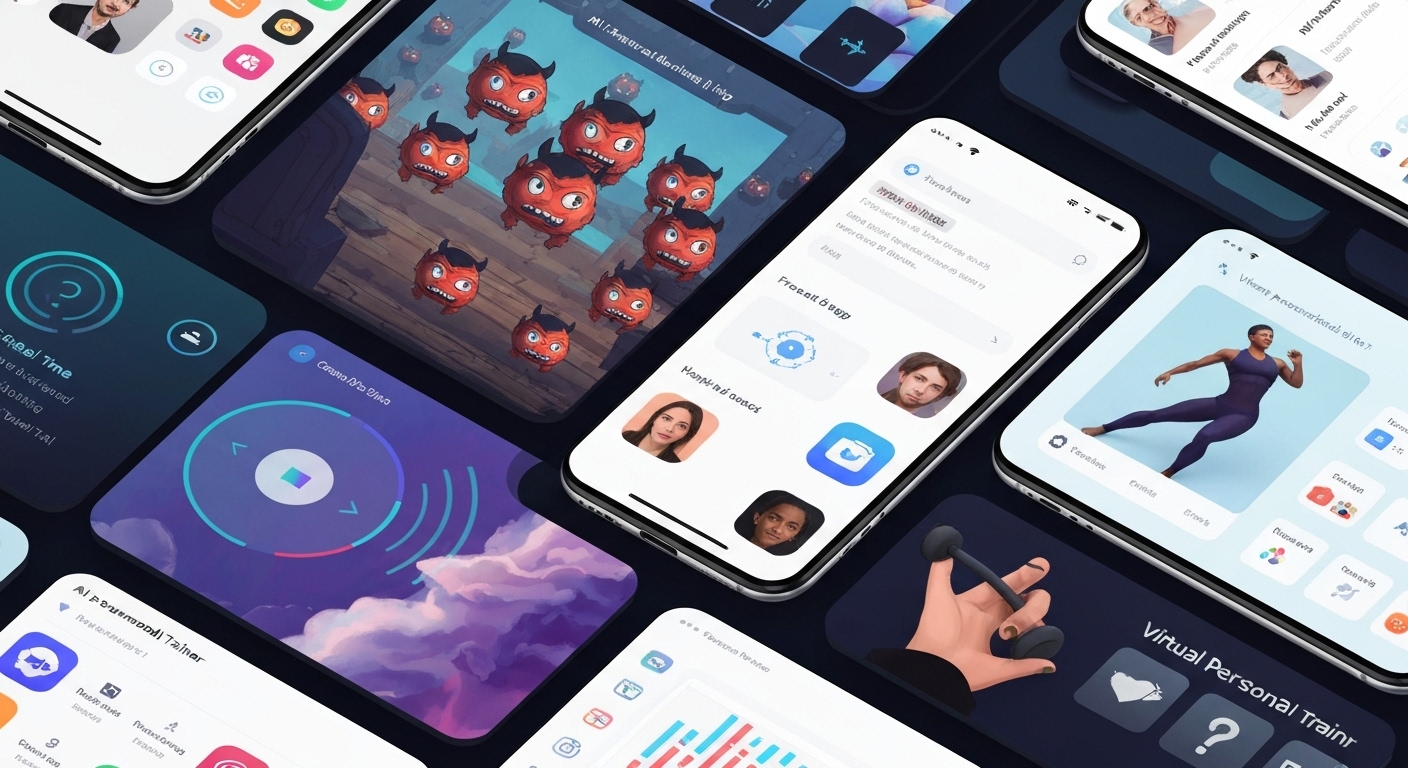Developing AI – First Mobile Applications : A Comprehensive Guide
Developing AI-first mobile applications is transforming how users interact with technology, offering smarter, more personalized, and efficient experiences. This article explores the key aspects of building such applications, from foundational concepts to advanced implementation strategies.
Understanding the Core Principles of AI-First Mobile Development
AI-first mobile development prioritizes artificial intelligence at every stage of the app development lifecycle. This means considering how AI can enhance core functionalities from the outset, rather than adding it as an afterthought. This approach necessitates a deep understanding of machine learning models, data science principles, and how to effectively integrate these into the mobile environment.

Key Considerations for AI-First Design
Several factors are crucial when designing for AI-first mobile applications. User experience (UX) must be at the forefront, ensuring that AI enhancements feel natural and intuitive. Data privacy and security are paramount, especially when dealing with sensitive user data used to train AI models. Performance optimization is also essential, as AI processes can be resource-intensive, impacting battery life and app responsiveness.
Choosing the Right Technologies for AI Mobile Development
The technology stack plays a vital role in successfully implementing AI in mobile applications. There are two primary approaches: on-device AI and cloud-based AI. On-device AI processes data directly on the mobile device, offering benefits such as faster response times and enhanced privacy. Cloud-based AI leverages remote servers for processing, enabling more complex and computationally intensive tasks.

Mobile AI SDKs and Frameworks
Numerous Software Development Kits (SDKs) and frameworks facilitate AI mobile development. TensorFlow Lite is a popular choice for on-device machine learning, offering optimized performance for mobile platforms. Core ML (Apple) provides a framework for integrating machine learning models into iOS applications. For cloud-based AI, platforms like Google Cloud AI Platform and Amazon SageMaker offer comprehensive tools and services.
Implementing Machine Learning in Mobile Applications
Machine learning (ML) is the engine that drives AI capabilities in mobile apps. Common ML applications include image recognition, natural language processing (NLP), predictive analytics, and personalized recommendations. The implementation process involves several key steps: data collection and preparation, model training, model optimization, and integration into the mobile app.
Data Collection and Preparation
High-quality data is essential for training effective ML models. The data collection process should be carefully planned to ensure that the data is representative, unbiased, and relevant to the desired AI capabilities. Data preparation involves cleaning, transforming, and formatting the data into a suitable format for model training.
Model Training and Optimization
Model training involves using the prepared data to train a machine learning model. This process typically involves selecting an appropriate ML algorithm, configuring the model parameters, and iterating on the training process until the model achieves the desired accuracy and performance. Model optimization is crucial for ensuring that the model runs efficiently on mobile devices with limited resources.
AI-Powered Mobile Experiences: Use Cases
AI is transforming various mobile app categories, creating new and improved user experiences. Here are some prominent use cases:
- Personalized Recommendations: AI algorithms analyze user behavior and preferences to provide tailored recommendations for products, content, or services.
- Image Recognition and Object Detection: AI enables apps to identify objects and scenes in images, opening up possibilities for visual search, augmented reality, and intelligent photography.
- Natural Language Processing (NLP): NLP allows apps to understand and respond to natural language input, enabling voice assistants, chatbots, and intelligent text analysis.
- Predictive Analytics: AI can predict future trends and events based on historical data, enabling applications such as fraud detection, predictive maintenance, and personalized healthcare.

Overcoming Challenges in Developing AI-First Mobile Applications
Developing AI-first mobile applications presents several challenges. Data privacy concerns necessitate robust security measures and adherence to privacy regulations. Performance optimization is critical to ensure a smooth user experience on resource-constrained mobile devices. The complexity of AI algorithms and the need for specialized expertise can also pose significant hurdles.
Addressing Data Privacy and Security
Protecting user data is paramount when developing AI-first mobile applications. Implement robust encryption and access control mechanisms to safeguard sensitive data. Comply with relevant privacy regulations, such as GDPR and CCPA. Consider using federated learning techniques to train models without directly accessing user data.
Optimizing Performance for Mobile Devices
Optimize AI models for efficient execution on mobile devices. Use techniques such as model quantization, pruning, and knowledge distillation to reduce model size and computational complexity. Leverage hardware acceleration capabilities, such as GPUs and NPUs, to improve performance. Profile and optimize code to minimize resource consumption.
Best Practices for AI App Architecture
A well-defined architecture is crucial for the success of AI-first mobile applications. Consider a modular design that separates AI components from the core app logic. Use asynchronous processing to prevent AI tasks from blocking the main thread. Implement robust error handling and monitoring to detect and resolve issues quickly.
Testing and Validation
Thorough testing and validation are essential to ensure the quality and reliability of AI-first mobile applications. Test AI models using a variety of data sets to assess their accuracy and robustness. Conduct user testing to evaluate the user experience and identify areas for improvement. Monitor the performance of AI components in production and continuously refine the models based on real-world data.
The Future of AI in Mobile Applications
The future of AI in mobile applications is bright, with ongoing advancements in AI technology and increasing adoption across various industries. We can expect to see more sophisticated AI-powered features, such as personalized virtual assistants, advanced augmented reality experiences, and AI-driven healthcare solutions. The increasing availability of powerful mobile devices and cloud computing resources will further accelerate the development and deployment of AI-first mobile applications.

For more information on cloud computing solutions, visit flashs.cloud.
To understand more about artificial intelligence, visit the USA.gov official website.
Conclusion
Developing AI-first mobile applications requires a strategic approach that prioritizes AI at every stage of the development lifecycle. By understanding the core principles, choosing the right technologies, and following best practices, developers can create intelligent mobile experiences that enhance user engagement, improve efficiency, and unlock new possibilities. As AI technology continues to evolve, mobile applications will become even more powerful and personalized, transforming how we interact with the world around us. Developing AI-first mobile applications is not just about adding features; it’s about reimagining the entire mobile experience.
HOTLINE
+84372 005 899


